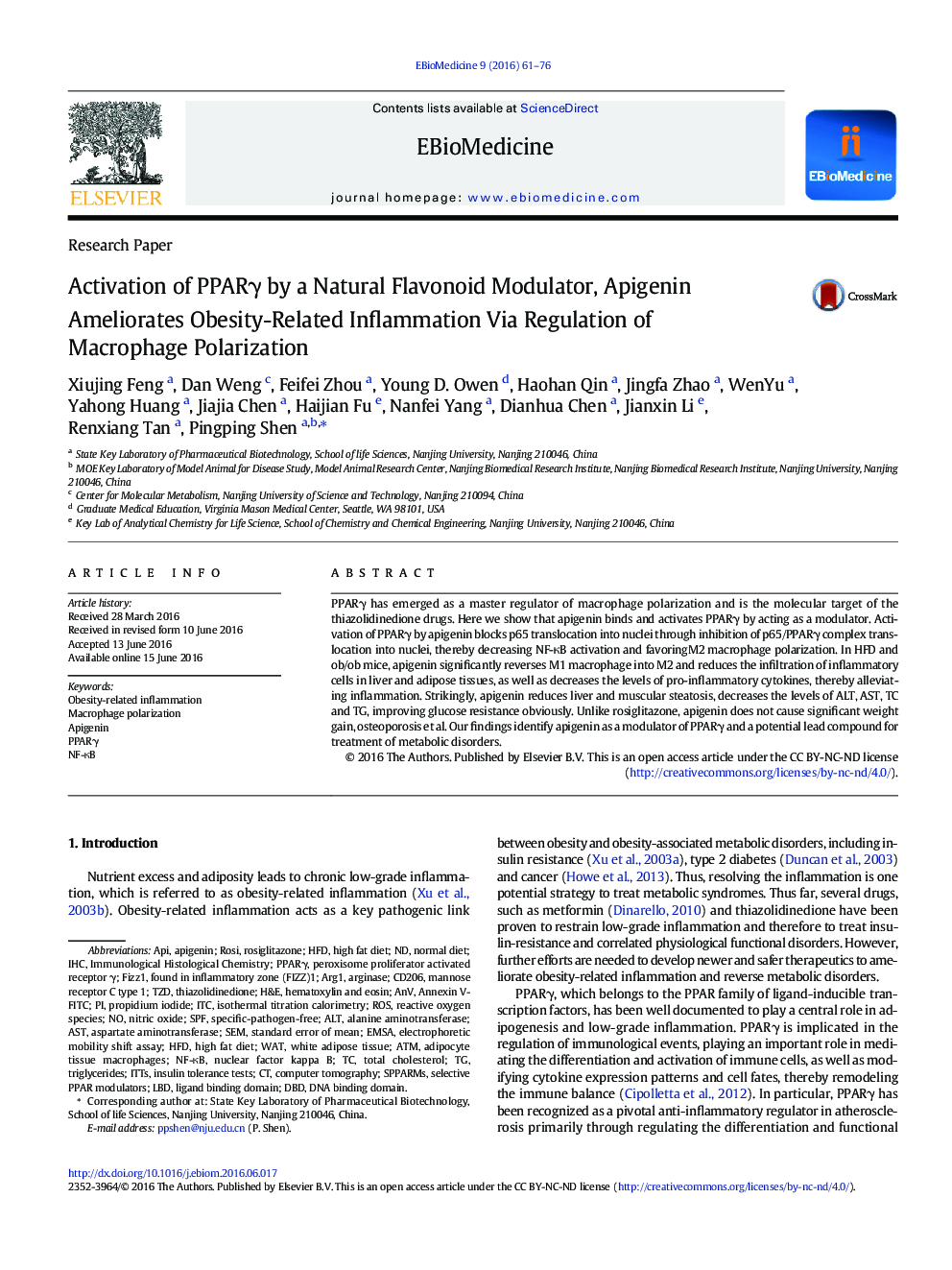| کد مقاله | کد نشریه | سال انتشار | مقاله انگلیسی | نسخه تمام متن |
|---|---|---|---|---|
| 2120705 | 1546890 | 2016 | 16 صفحه PDF | دانلود رایگان |

• Apigenin binds and activates PPARγ and significantly reverses the polarization of macrophages from M1 to M2 phenotype.
• Activation of PPARγ by apigenin blocks p65 translocation through inhibiting p65/PPARγ complex translocation into nucleus.
• Apigenin significantly attenuates metabolic inflammation and disorders without causing some side effects as TZD drugs do.PPARγ is the molecular target of the thiazolidinedione drugs to treat type II diabetes. However, TZD drugs have some side effects including cardiovascular failure, liver toxicity, bone fractures and potential carcinogenesis, which have greatly limited their clinical use. Here, we find apigenin, a flavonoid molecule abundant in various fruits and vegetables, can control macrophage fate to inhibit inflammation and metabolic syndrome without causing some side effects as TZD drugs. Further study indicates that apigenin can target PPARγ with a range of beneficial effects and may represent a lead compound for developing new therapies against metabolic disorders.
PPARγ has emerged as a master regulator of macrophage polarization and is the molecular target of the thiazolidinedione drugs. Here we show that apigenin binds and activates PPARγ by acting as a modulator. Activation of PPARγ by apigenin blocks p65 translocation into nuclei through inhibition of p65/PPARγ complex translocation into nuclei, thereby decreasing NF-κB activation and favoringM2 macrophage polarization. In HFD and ob/ob mice, apigenin significantly reverses M1 macrophage into M2 and reduces the infiltration of inflammatory cells in liver and adipose tissues, as well as decreases the levels of pro-inflammatory cytokines, thereby alleviating inflammation. Strikingly, apigenin reduces liver and muscular steatosis, decreases the levels of ALT, AST, TC and TG, improving glucose resistance obviously. Unlike rosiglitazone, apigenin does not cause significant weight gain, osteoporosis et al. Our findings identify apigenin as a modulator of PPARγ and a potential lead compound for treatment of metabolic disorders.
Graphical AbstractFigure optionsDownload as PowerPoint slide
Journal: EBioMedicine - Volume 9, July 2016, Pages 61–76